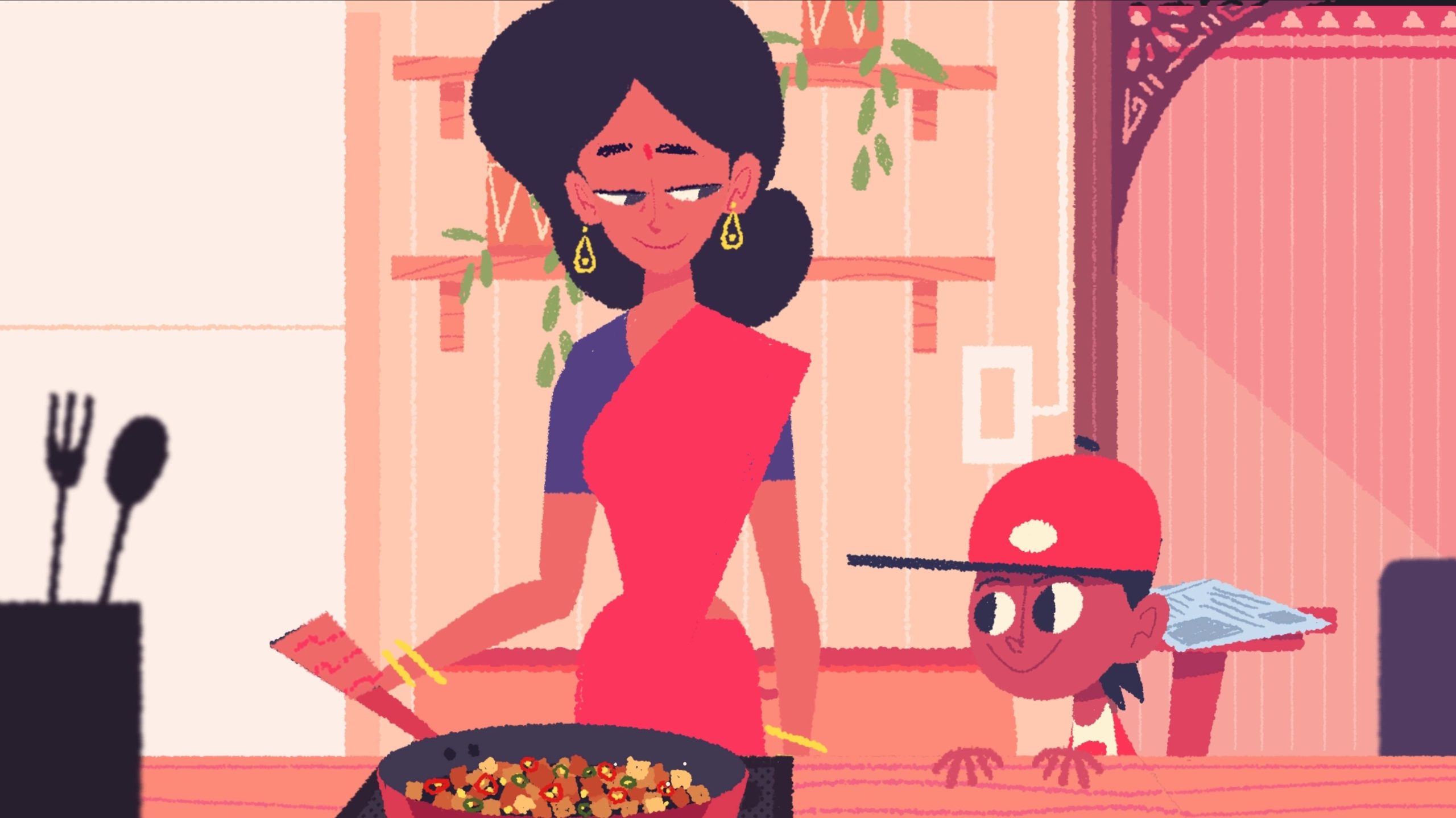Like most people who survived 2020, my brain now seems incapable of recovering past memories or creating new ones. But as I was recalling an old song recently (something pop-punk, a la Head Automatica), I came across Fran Lebowitz talking about the power of music in her Pretend It’s a City series on Netflix. “No one is loved like musicians, because they give people the ability to express their emotions and their memories,” she says. “There’s no other form that does that. I really think that musicians, probably musicians and cooks, are responsible for the most pleasure in human life.”
Venba
- Developer/Publisher: Visai Games
- Platform: PC
- Availability:Winter 2021
It’s one of the emotions I’m wondering will be present in Venba, an upcoming cooking-based narrative game arriving this November from artist Sam Elkana and designer/programmer Abhi from Toronto. The story follows the life of an Indian immigrant mother in 1980s Canada, cooking for her family and having discussions with them.
Speaking via Skype, Abhi’s explanation for making this the game’s centre seems both obvious and unique. “I personally find a lot of media that relates to immigrant stories, they tend to focus on the second generation kids – just the kids. But I think the parents have the cooler sorry to tell,” he argues. “Because they up and leave their country at the age of 40 or 50, and they move to a brand new place. So that sort of makes it super challenging for them and I think we’re not doing enough to keep that in mind. So Venba is more about exploring that relationship between these assimilated children versus their non-native parents.”
Abhi moved to Canada with his parents at the age of 12, studying computer science before entering the games industry. His early experience already shows the mind of a games designer when I ask some of my questions, particularly about why he’s focussing on food. “I think food lends itself to gameplay mechanics really well. So when I thought about the way it’s going to carry the story, food automatically made sense…because the same family can be laughing at a dining table, sad or angry. But they all have to come together for that. Every day you’re cooking but the scenario around you changes, you’re all still there eating. I thought that it just felt natural and the story itself features the mother who is trying to bridge the gap with her son. And she’s trying to put all these unsaid words and emotions into the cooking. To me it felt that food was the best way.”
This reminds me of the recurring “apologise like an ethnic parent” meme that often comes and goes on social media, which automatically brings in the default “come and eat” response that’s recognisable to so many, myself included. And although he explains the game’s emotional core so thoughtfully, it’s Abhi’s own interests as a foodie that reveal the game’s enthusiasm.
